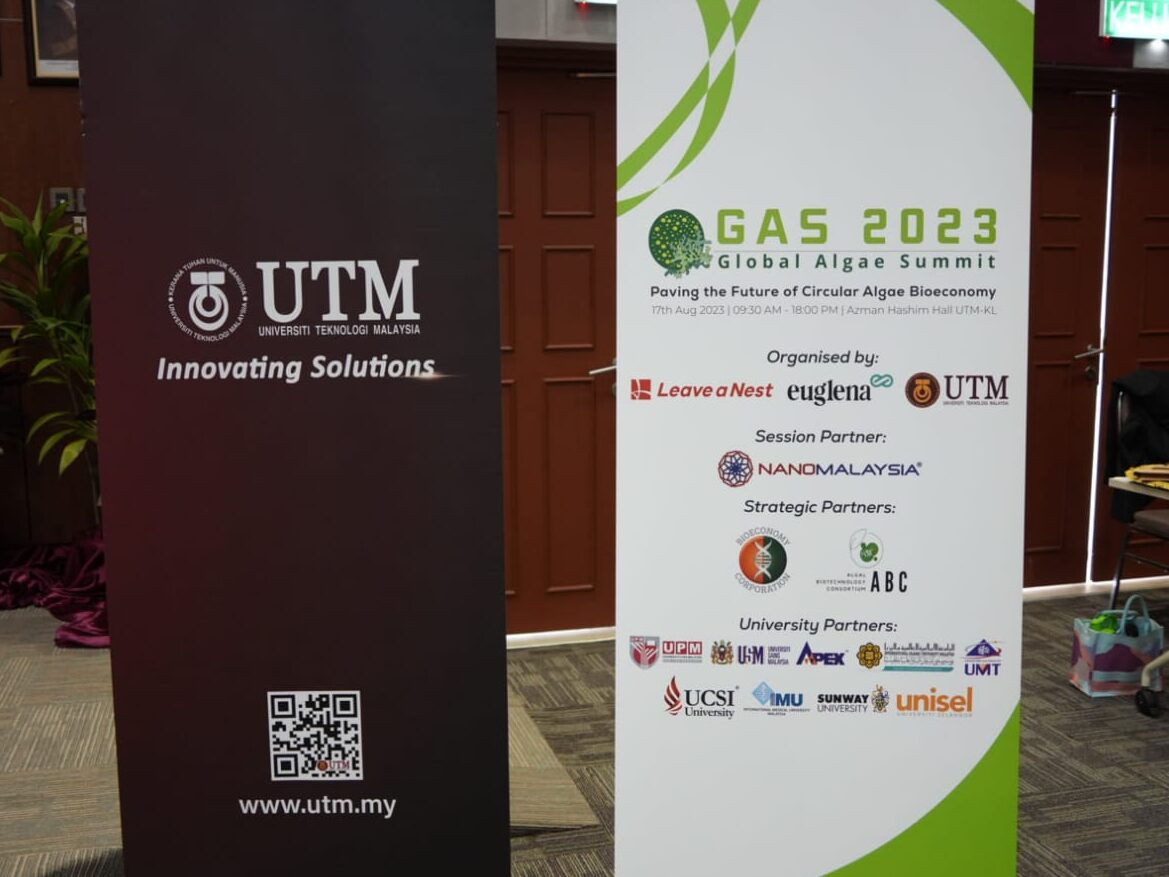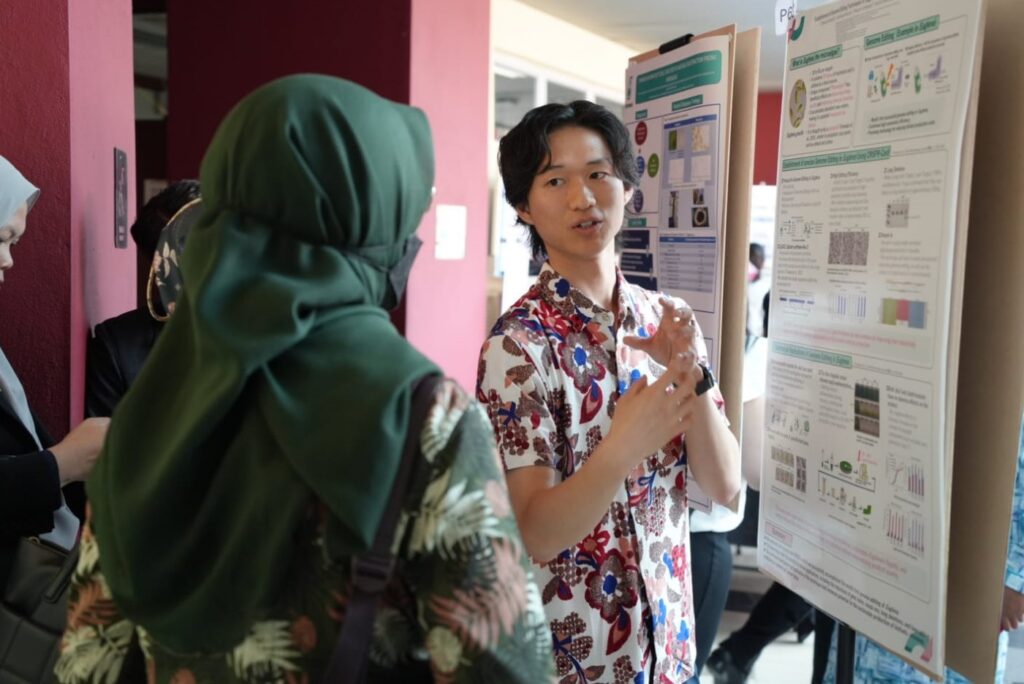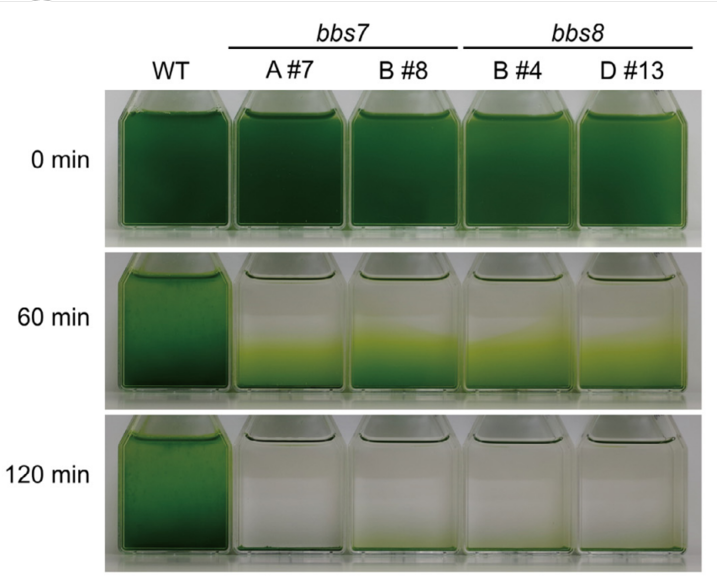
Euglena Co., Ltd. presents Breakthrough Genomic Editing Technology in Euglena at Global Algae Summit (GAS) 2023
UTM, Kuala Lumpur, Malaysia – August 17, 2023 – Euglena Co., Ltd. showcased its pioneering genomic editing technology for Euglena at the inaugural Global Algae Summit (GAS) 2023, held on August 17th in UTM, Kuala Lumpur.

■About the Global Algae Summit
The GAS 2023 event provided a platform for experts and stakeholders across diverse domains to convene and discuss the latest advancements and innovations in the algae industry. Hosted at the Malaysia – Japan International Institute of Technology (MJIIT)-UTM, the summit centered around the theme of "Paving the Future of Circular Algae Bioeconomy." Activities included keynote presentations, panel discussions, poster presentations, and exhibitions highlighting cutting-edge research and technologies within the algae field.

■Establishment of Euglena's Genome Editing
Our breakthrough lies in the realm of genomic editing for Euglena gracilis, an industrially significant species of microalgae. In a collaborative effort between the RIKEN Institute and Euglena Co, Ltd. we successfully established a high-efficiency genomic editing method for Euglena gracilis, opening new vistas for fundamental research and the breeding of valuable strains.
Euglena, hold immense potential in applications ranging from food to biofuels. However, until now, an efficient genomic editing technique was lacking for their comprehensive study and enhancement. Our research team achieved a remarkable editing efficiency of approximately 80% in target genes through the direct introduction of the Cas9 RNP complex into Euglena cells, aided by the identification of optimal conditions. Furthermore, the study unveiled the capability to induce substantial deletions using two types of Cas9 RNP complexes and the precise introduction of foreign DNA molecules using single-stranded donor DNA molecules. The results of this study have been published in the esteemed scientific journal "Plant Biotechnology Journal."

■Applications of Euglena's Genome Editing
Expanding upon the application of Euglena genomic editing, the collaborative research group from RIKEN Institute and Euglena Co., Ltd. achieved the creation of a non-motile genome-edited strain of Euglena gracilis, a species widely utilized for industrial purposes. This achievement holds potential to significantly enhance the efficiency of production for Euglena-based commodities like food and biofuels.
In the industrial production process of algae, the cost of cell recovery from mass cultures, often achieved through methods such as centrifugation, constitutes approximately 20-30% of production costs. This underscores the need for improved efficiency in recovery to mitigate production expenses. Leveraging the high-efficiency genomic editing technology established previously, the research group successfully generated a non-motile Euglena strain deficient in the genes responsible for cilia formation—a trait essential for motility. The non-motile Euglena strain, characterized by the absence of cilia, facilitates ease of cell recovery as the algae precipitate upon simple settling. Notably, this strain retains industrial utility in processes like proliferation, paramylon production, and oil production for biofuels, akin to wild-type Euglena. This achievement is documented in the online edition of the "Plant Biotechnology Journal."


■Paper information
Nomura, T.; Inoue, K.; Uehara-Yamaguchi, Y.; Yamada, K.; Iwata, O.; Suzuki, K.; Mochida, K. Highly Efficient Transgene-Free Targeted Mutagenesis and Single-Stranded Oligodeoxynucleotide-Mediated Precise Knock-In in the Industrial Microalga Euglena gracilis Using Cas9 Ribonucleoproteins. Plant Biotechnology Journal 2019, 17, 2032–2034.
Ishikawa, M.; Nomura, T.; Tamaki, S.; Ozasa, K.; Suzuki, T.; Toyooka, K.; Hirota, K.; Yamada, K.; Suzuki, K.; Mochida, K. CRISPR/Cas9-mediated Generation of Non-motile Mutants to Improve the Harvesting Efficiency of Mass-cultivated Euglena gracilis. Plant Biotechnology Journal2022, 20, 2042–2044.
